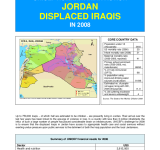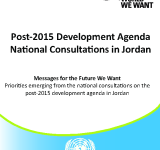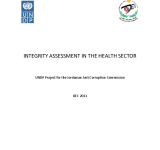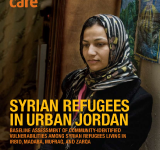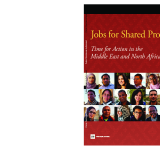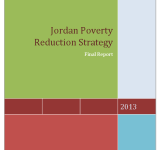والرعاية الصحية
Jordan is one of the 88+ countries which carried out national consultations worldwide. 10 countries from the Arab region were selected to run the post-2015 national consultations: Jordan;; Djibouti;; Egypt;; Morocco;; Sudan;; Algeria;; Yemen;; Iraq;; Saudi Arabia;; and Lebanon. The Jordanian national consultations have been a lead contributor to the first preliminary report of the UN Development Group (UNDG) issued in March 2013 and entitled “The Global Conversation Begins – Emerging Views For a New Development Agenda”;; and also to the UNDG Global report “A million voices: The World We Want”;; launched by the UN Secretary-General and UNDG Chair on 9 September 2013. The Global Report constitutes a milestone in the dialogues to shape the post-2015 development agenda. Its findings have contributed to the UN Secretary-General’s report to the 68th session of the General Assembly in September 2013.
The report looked specifically at the areas of public mainly Ministry of Health (MoH) procurement of medications and medical devices and supplies. Accordingly a number of methodologies were being used to identify potential areas of integrity weakness in the public procurement processes. The existence of an effective functioning procurement system is dependent on the transparency of the processes;; and ability to hold individuals;; entities and personnel accountable for adhering to standard procedures;; norms;; laws;; by-laws and regulations in each of these functions. The approach to be taken in this assessment is to focus on the level of integrity rather than to deal purely with identifying corruption
This report is a baseline assessment of community-identified vulnerabilities among Syrian refugees living in Amman;; Irbid;; Madaba;; Mufraq;; and Zarqa. The purpose of this report is to identify urban Syrian refugees’ current coping mechanisms and any gaps in services available to Syrian refugees in Jordan. The research methodology is both qualitative and participatory in design;; drawing from the UNHCR tool for Participatory Assessment in Operations. This report presents only the data from household interviews;; baseline assessment;; and the follow-up focus groups conducted with community members. The number of households surveyed was 240;; with a total number of 1;;476 household members and 89 focus group participants representing 534 household members. The report proposed general recommendations and interventions to deal with the main highlighted challenges (cash assistance;; strengthening community links;; vocational training;; physical activities ...etc).
Assessment of Health Needs and Living Conditions of Migrants in Jordan 2011-2012 is a cross sectional study conducted by International Organization for Migration IOM Jordan in collaboration with the Jordanian Ministry of Health to provide baseline information about health needs and challenges that affect different migrant groups in Jordan to assist the government and relevant parties to develop policy and strategies to manage migrant's health. According to the results of the study;; a number of recommendations were emerged which would be the guidance for the government and relevant parties in developing policy and strategies to improve and manage migrant's health.
The Government of Jordan adopted its first Poverty Alleviation Strategy in 2002 recognizing poverty as a key development problem requiring a comprehensive policy for improving the lives of the poor and socially excluded;; increasing their human capabilities;; providing them with economic opportunities and fully integrating them in the society. Considerable progress in poverty reduction has been achieved. The Government has put in place a series of social programs aimed at increasing employment opportunities;; curbing unemployment;; combating poverty and offering in-kind and cash assistance for the poor and marginalized groups within Jordanian society
